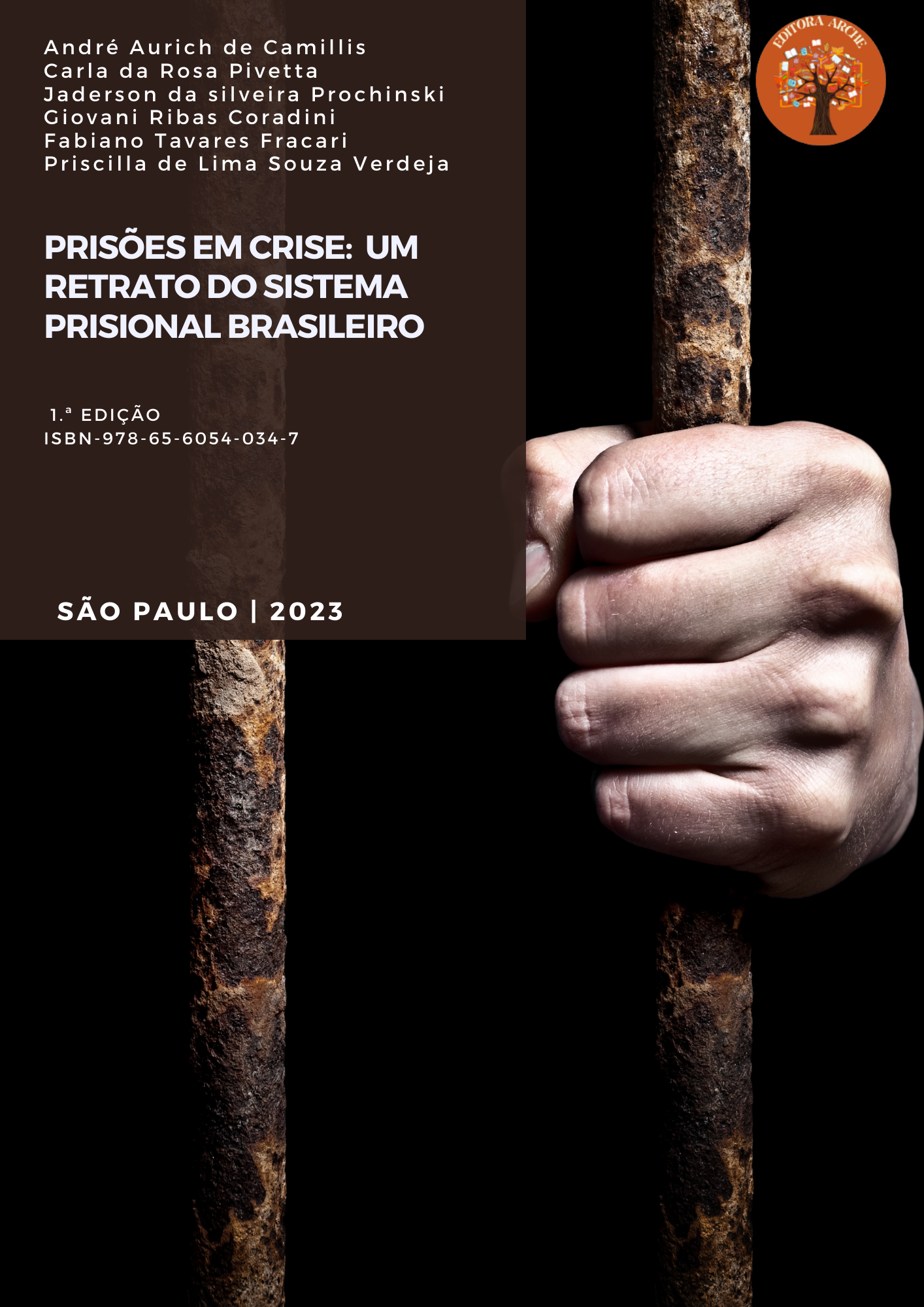PRISONS IN CRISIS: A PORTRAIT OF THE BRAZILIAN PRISON SYSTEM
Keywords:
Prison system. Brazilian prisons.Abstract
We invite you to read this topic, which is of great complexity, especially in Brazil. This digital book proposes an exploration and critique of the issues that permeate prisons in Brazil. Starting with the presentation of the topic, we outline the objectives of this research, outline the methodology used and provide an overview of the organization of the chapters, which seek to uncover the intricate layers of this challenging scenario.
In chapter 1: The historical evolution of the Brazilian prison system: this item delves into the history of the Brazilian penal system from the colonial period to the present day, this chapter sheds light on the evolution of criminal legislation and prison institutions. With a critical eye, we seek to understand the historical roots that shaped the current structure of the system.
In chapter 2: The reality of Brazilian prisons: This chapter delves into the depths of Brazilian prisons, detailing the physical, material, sanitary and security conditions. The challenges faced are highlighted, such as overcrowding, violence, corruption and lack of assistance, highlighting the human rights violations that persist in this environment.
Next, the chapter, called: The profile of the Brazilian prison population: Explores the sociodemographic, educational, economic and criminal characteristics of prisoners in Brazil, this chapter focuses on issues of gender, race, age and regionality, contributing to a more comprehensive understanding of the prison population.
The following chapter, “The impacts of prison on the lives of prisoners and society”, aims to analyze the multifaceted effects of prison on the physical and mental health of inmates, on family and social relationships, on the prospects for reintegration and resocialization, as well as as well as the economic and social costs associated with maintaining the prison system.
Chapter 5: Alternatives to mass incarceration: Exploring measures to reduce the prison population, this chapter discusses the decriminalization of conduct, review of sentences, expansion of precautionary measures, alternative sentences and the implementation of practices such as custody and justice hearings restorative.
Finally, Chapter 6: Proposals for improving the Brazilian prison system, concludes the work, presenting reform proposals based on successful national and international experiences. This includes the construction and management of new prison units, training and development of prison officers, guaranteeing prisoners' rights, offering education, work, health and leisure in prisons, supervision and social control, and coordination between public authorities and the civil society.
In short, this digital book is a valuable contribution to understanding, questioning and rethinking the Brazilian prison system, proposing reflections and well-founded solutions for a necessary transformation.
Happy reading to everyone,
The authors.
Downloads

Downloads
Published
How to Cite
License
Atribuição CC BY
